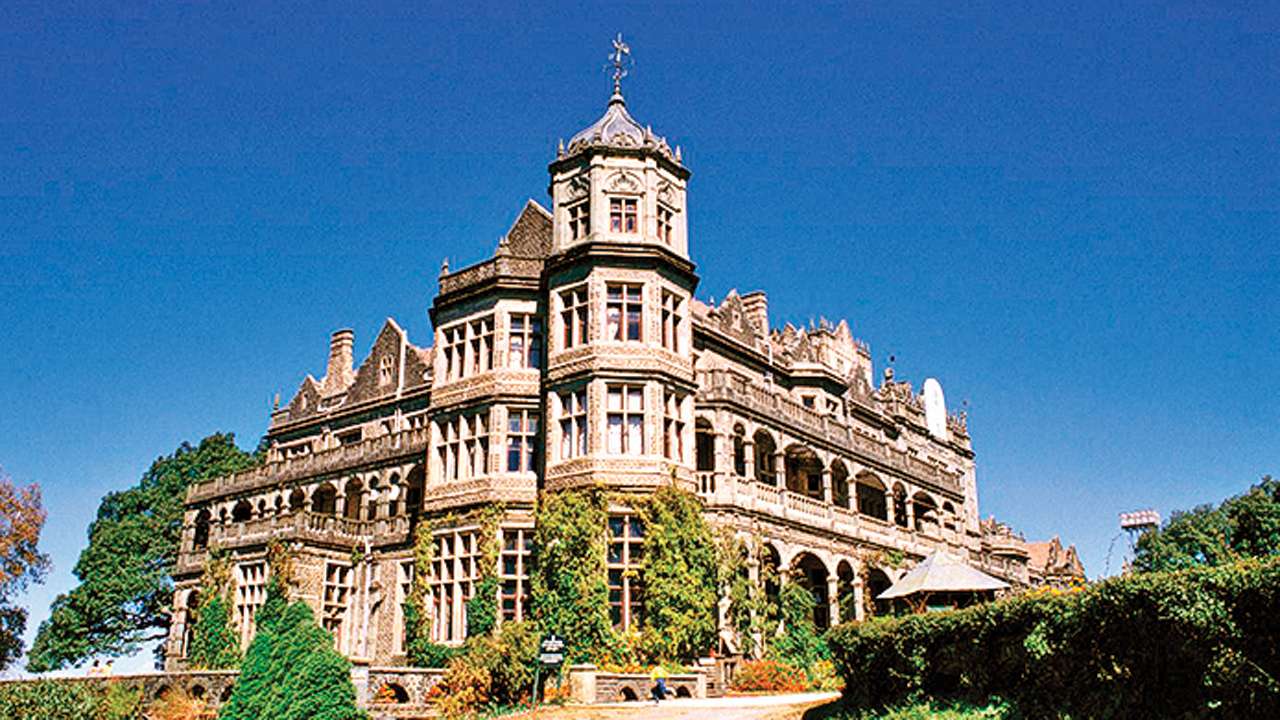
Shimla research centre’s proposed collaboration with US-based Hindutva group has scholars worried” – says the clever, pseudo-pedantic headline of the article. Curious, I glance at the sub-heading: “Academics are alarmed by changes at the premier Indian Institute of Advanced Study.” That’s it, I think to myself: It’s started already, the stirring of slander and sleaze, so seemingly smooth and innocuous as to leave its deeply embedded ideological bias almost unnoticed. Well, who are these “worried scholars” and “academics alarmed”? Neither is named. Nor, not surprisingly, those who might actually be happy over the changes.
But I have gotten ahead of myself: I should have begun with an admission, if not confession, as well as a rider, if not caveat. The former first: rumour is rife that I have been appointed Director of this prestigious Institute. Indeed, my name also features in the said article as “known critic of the Left.” Well, then, let me admit, that I am an interested party, but not at all for the above reason. Indeed, here’s the rider or caveat: this is not the place either to confirm or deny it.
My interest in the IIAS runs deeper. I first visited it in October 1994 as an invited speaker in an international conference on “Interrogating Post-colonialism.” The setting of the conference couldn’t have been more (in)appropriate. The former Viceregal Lodge, seat of summer capital of British India since 1888, built on the beetling brow of Observatory Hill at the cost of Rs 38 lakh in a style that may be described as a cross between English Renaissance and Scottish Gothic, IIAS is indeed an imposing reminder of the grandeur and power of empire.
It was the extraordinary vision and generosity of President S Radhakrishnan who “donated” this part of the presidential estate in 1964 for “an institute for advanced research in humanities, social, and natural sciences.” The Memorandum of Association (MoA) of the Institute Society states its objective to promote “free and creative inquiry into fundamental themes and problems of life and thought” and encourage “creative thought in areas which have deep human significance.” Since that first and stunning close encounter with IIAS, I have visited it several times, once as Visiting Professor. A book, Towards a Poetics of the Indian English Novel, published by the IIAS, was the outcome and is thankfully still in print.
In other words, regardless of who the Chairman of the Society or the Director is or which party is at the helm of affairs in the Centre, IIAS should fulfil the mandate of its founders, who were great visionaries. Unfortunately, the Institute has often been the hotbed of vested interests, with overt ideologies and agendas, which sometimes even went against the stated Areas of Studies in the MoA, especially “national integration and nation-building.” The research done at the Institute was also expected to have policy implications and impact. The MoA clearly states that in the projects funded by the Institute, attention ought to be paid to “national relevance” and that government departments and research organisations be consulted. Were these objectives fulfilled in the recent past? Worse, didn’t most fellows, not to mention the topics of study, lean towards a certain way politically? Indeed, a wit, not entirely jocularly, described the Institute as the waiting room-cum-retirement chamber of unemployed Marxists.
The article in question does not address such issues at all. Its sleight of hand lies in normalising the so-called “Left-Liberal” hegemony of IIAS while calling out “Hindutva” as the illegitimate usurper. There is no reasoning or evidence offered as to why the former is not the monster or why the latter cannot be, in fact, the corrective needed to restore IIAS to the vision of its founders. Indeed, the “founding moment” emphasised how the Institute was meant to question rather than perpetuate the status quo. That is why, when it comes to the critics and detractors of the “new” IIAS, one might well concur with its current President of the Governing Body, Professor Kapil Kapoor, who is quoted as saying “Are they allergic to the word Dharma?”
What is important in the end is not just what rituals, whether lamp lighting or singing an invocation, are changed or introduced, but the quality of the academic proceedings and output of the Institute. Are transparent procedures and best practices followed or is one type of dominance replaced by another, without regard to the core values of IIAS, which are to reflect on matters of the deepest human significance in the spirit of free and creative inquiry? One might add that when a sturdy broom sweeps away years of accumulated dust and cobwebs a few fat spiders are bound to be displeased and disturbed, if not displaced and dislodged.
The author is a poet and professor at JNU. Views expressed are personal.